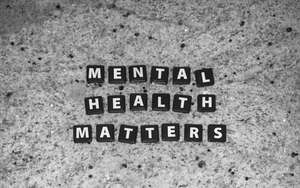
Starting the Conversation: 3 Ways to Talk About Mental Health at Work
Reading Time: 2min
Bringing up mental health at work can feel daunting. We worry about being judged, seen as less capable, or oversharing. But when we stay silent, we miss opportunities to support each other and create a healthier workplace for everyone.
The good news is that starting the conversation doesn't have to be awkward or dramatic. Here are three simple, effective ways to begin talking about mental wellbeing at work.
1. Normalize It in Everyday Conversations
The easiest way to reduce stigma is to make mental health part of your regular work vocabulary, without making it a big deal.
How to do it: Use inclusive, wellbeing-focused language in meetings and casual chats. Instead of just asking "How was your weekend?" try "How are you really doing this week?" During stressful periods, you might say, "This project deadline is intense - remember to take breaks when you need them." When sharing that you're taking time off, you could normalize it by saying, "I'm using a mental health day to recharge."
2. Lead by Example When You're Struggling
You don't need to share your deepest struggles, but showing appropriate vulnerability gives others permission to do the same.
How to do it: If you're having an overwhelming day, you might tell your team, "I'm feeling a bit stretched thin today, so I'm going to focus on deep work for a few hours." When making a simple error, you could say, "My focus isn't at its best today - can we double-check these numbers together?" This approach models that it's acceptable to not be perfect and to communicate your needs honestly.
3. Use Neutral Framing in Team Settings
When discussing workload or workplace culture, frame mental health as a collective benefit rather than an individual problem.
How to do it: In team meetings, you might ask, "What's one thing we could change to make our workflow less stressful?" or "How can we better support each other during busy seasons?" Suggest practical team norms like "Let's avoid after-hours emails" or "Can we protect the lunch hour as meeting-free?" This makes mental health about creating a better work environment for everyone, not calling out individuals who may be struggling.
Making It Stick
Remember that change often happens gradually. Your first attempt might feel uncomfortable, and that's okay. The goal isn't to solve everything in one conversation, but to slowly create a culture where:
People feel safe to say "I'm not okay"
Taking mental health breaks is as normal as taking sick days
Supporting each other's wellbeing is part of being a good colleague
By starting these conversations, you're not just helping yourself - you're helping create a workplace where everyone can bring their whole, human self to work. And that benefits every single person on your team.

















